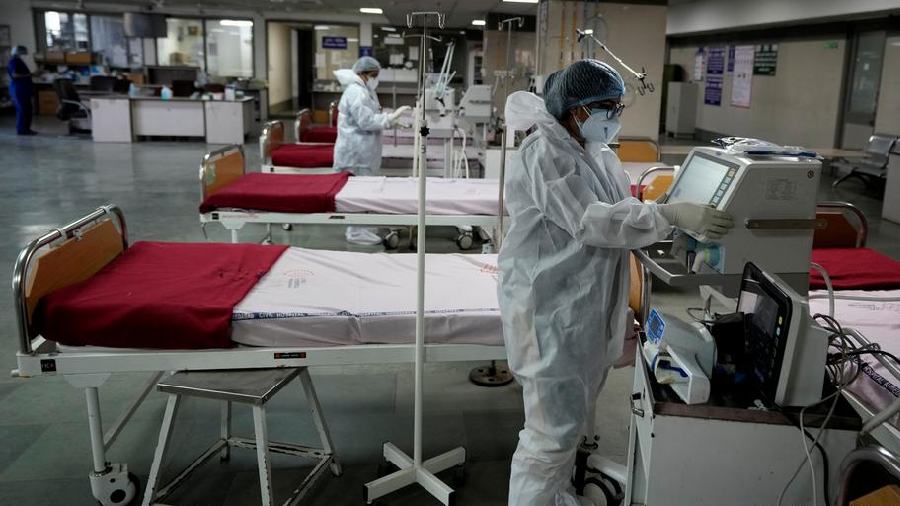India has seen an increase in the number of daily new Covid-19 cases over the past few days, with virologists and epidemiologists saying that a new variant, XBB.1.16, could be the reason behind the surge.
According to Health Ministry data on Tuesday, the South Asian country logged 1,573 fresh infections in 24 hours, while the number of active cases had increased to 10,981.
That's up from the less than 100 new cases India reported on some days in January this year — which was the lowest rate since the onset of the pandemic in early 2020.
"New variants will keep coming as the virus keeps on mutating over time and the XBB 1.16 is the new strain. These are all from the omicron family, with higher infectivity and lower virulence," Srinath Reddy, former president of the Public Health Foundation of India, told DW.
Indian hospitals to hold anti-Covid drills
Following the surge in cases, Secretary of the Ministry of Health Rajesh Bhushan held a meeting with officials from various states and reviewed the nation's Covid preparedness.
State authorities have also been told to undertake mock drills at health facilities on April 10 and 11 to ensure operational readiness of medical infrastructure.
"The exercise is aimed at taking stock of the availability of medicines, hospital beds, medical equipment and medical oxygen," a senior health official told DW.
A similar exercise was held in December last year when there was a surge in Covid-19 cases in countries such as China, Japan, Brazil and South Korea.
'Increase in cases will subside'
Despite the rising cases, there is no need to panic, said Gautam Menon, dean of research at Ashoka University.
"The rise in infections has not resulted in a rise in serious cases. This is because the new variant is encountering a population that is already substantially protected against severe disease, through a prior infection or vaccination or, in most cases, both," Menon told DW.
"The symptoms and their relative mildness suggest that Covid-19 will likely stay with us for the foreseeable future, causing mild disease in a seasonal manner, much like the other human coronaviruses that cause about 30% of common colds," Menon added.
Vineeta Bal from the Indian Institute of Science Education and Research in Pune pointed out that a discernible pattern is emerging in which a more transmissible virus variant appears, displaces the dominant one, leads to an increase in cases, and then subsides as people gain immunity.
"A similar process is happening with XBB.1.16 as well," she said, adding: "The variant appears marginally more infectious, possibly leading to some increase in symptomatic Covid, though not overwhelmingly so."
"Immunity due to vaccination and earlier infections is likely to be waning in the community, and hence a recombinant variant such as XBB.1.16 is gaining some ground. I do not expect another major outbreak of serious illness and this increase in cases may subside in some time."
Expanding vaccination coverage
India, a country of 1.4 billion people, has administered more than 2.2 billion Covid vaccine doses.
But government data shows only about 30% of the eligible population has so far received a third or booster dose.
Authorities say they are trying to expand this coverage, especially among high-risk and vulnerable sections of society.
Giridhara Babu, an epidemiologist, said "proactive surveillance" was key to efforts to prevent another mass outbreak of coronavirus infections.
"Despite XBB.1.16 being potentially more contagious than other omicron variants, there is no evidence to suggest that it leads to higher disease severity or increased hospitalization and mortality rates," he stressed.
"With Covid now endemic, it is crucial to continue proactive surveillance efforts to guide the future course of action."












